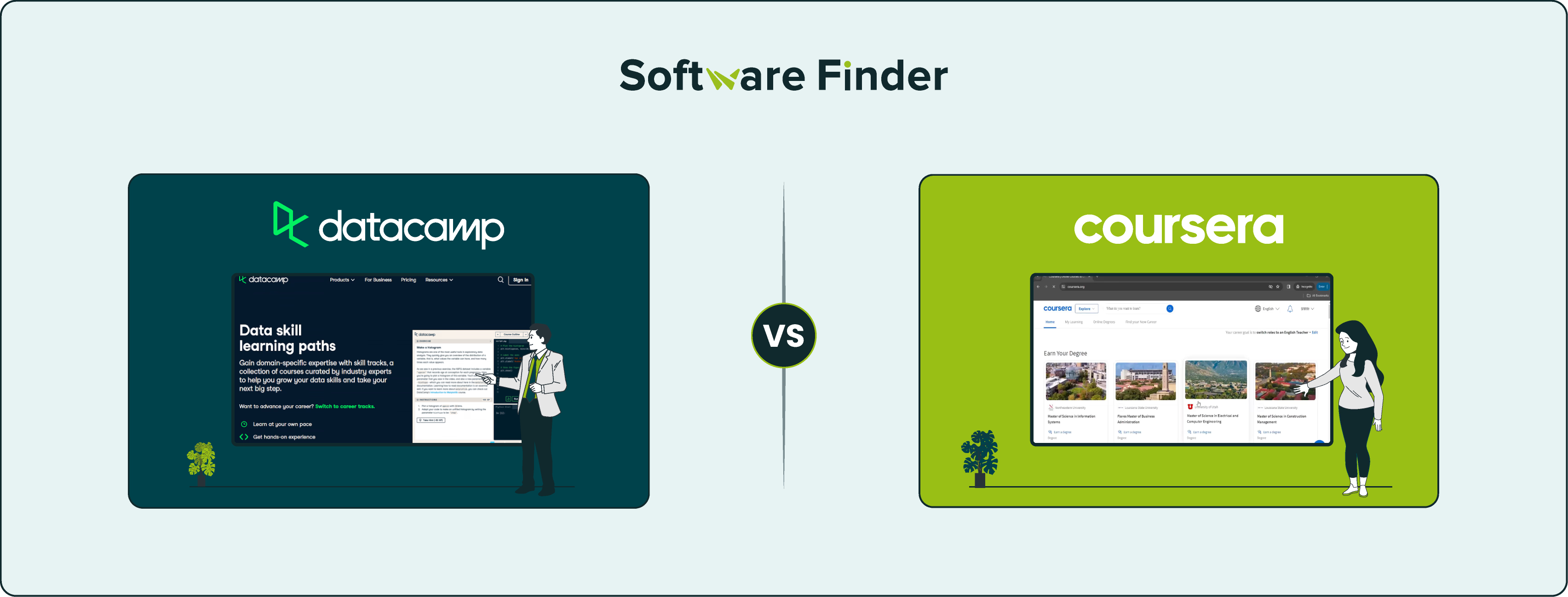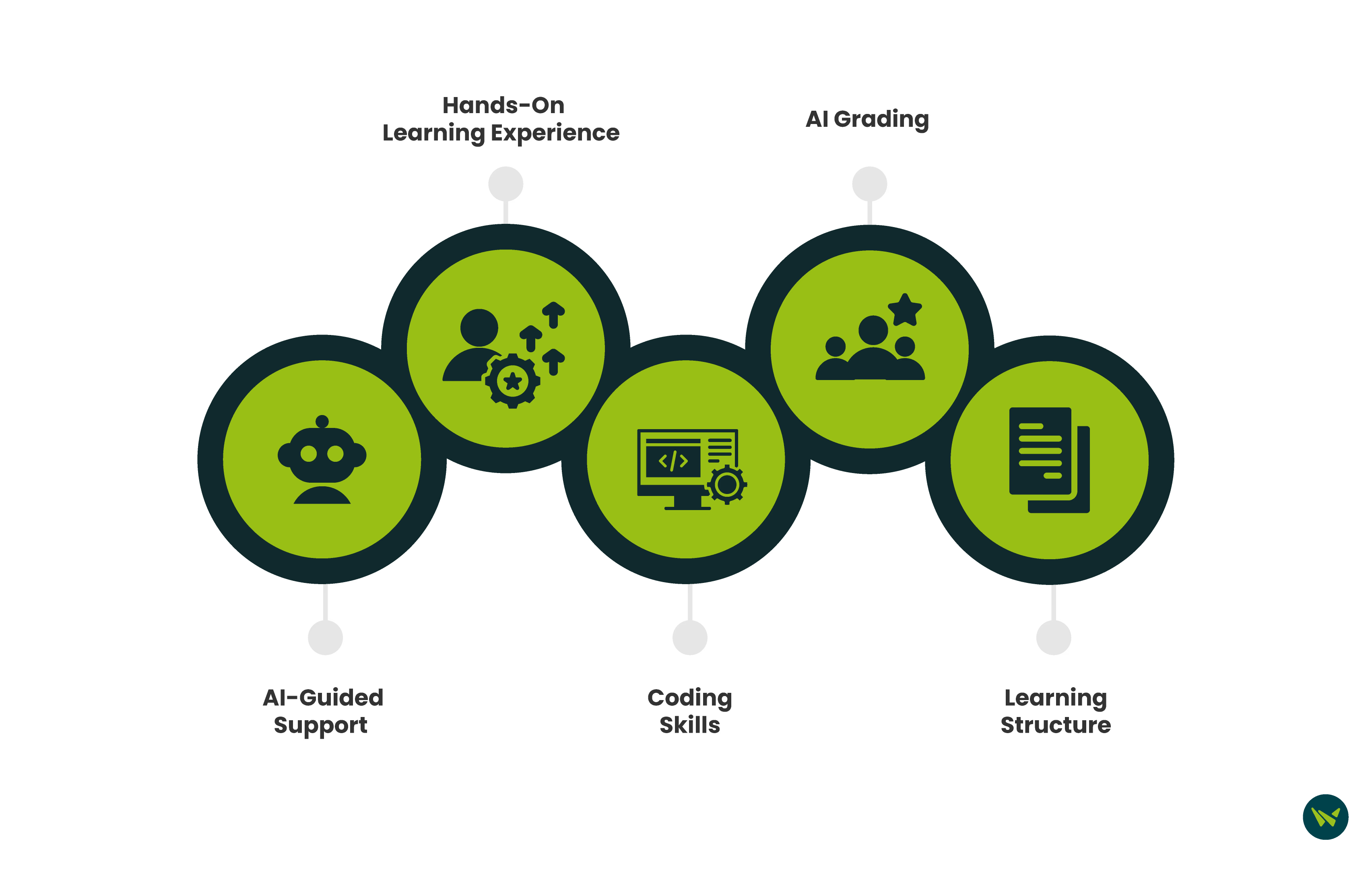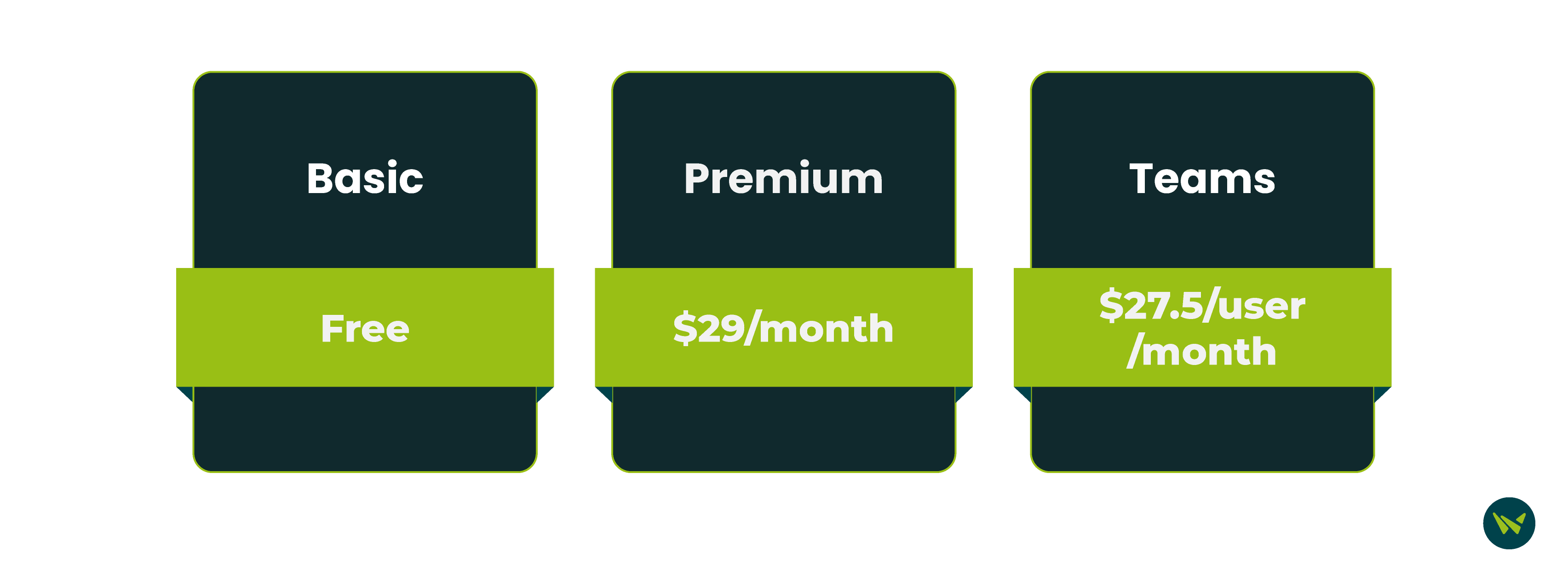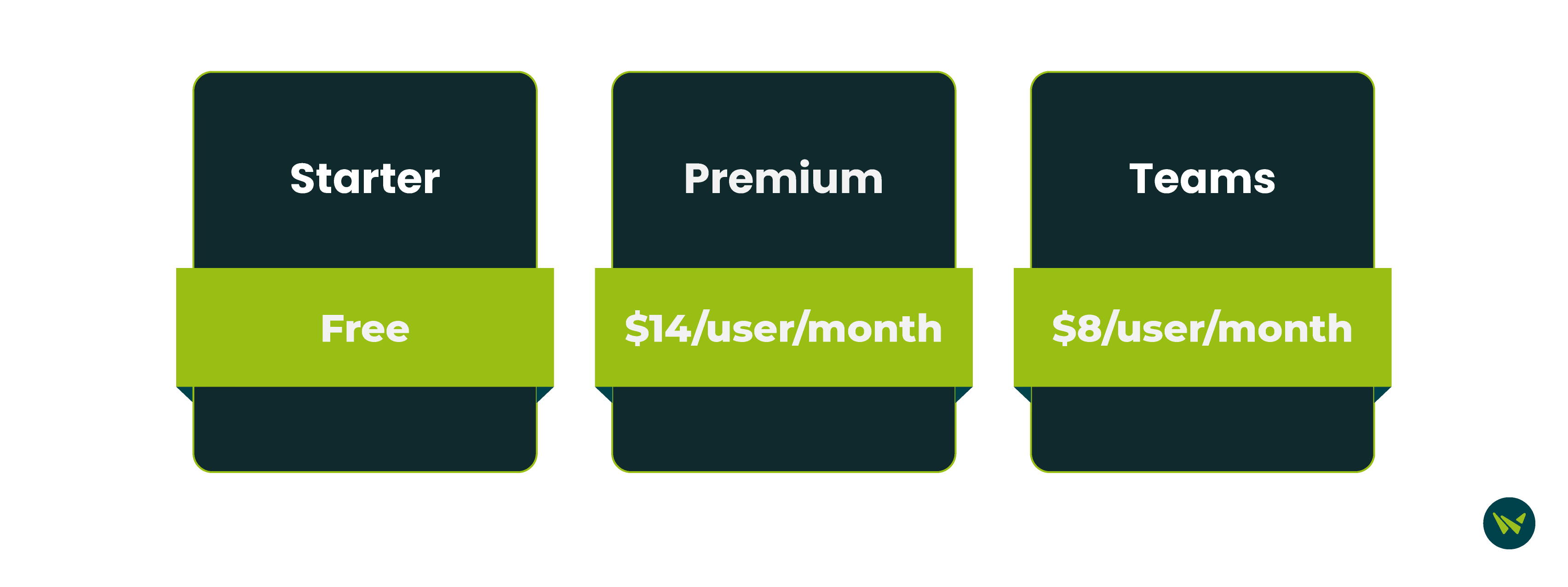
Online learning platforms play an important role in helping individuals and organizations build technical and professional skills. With features like structured course libraries, interactive tools, and flexible learning options, they make it easier to gain job-relevant knowledge at your own pace. However, selecting the most suitable platform requires a careful evaluation of course depth, delivery style, subject focus, and credential value.
DataCamp and Coursera are two leading online learning platforms built to support skill development across various domains. While DataCamp focuses on data science, programming, and AI through hands-on coding tools, Coursera delivers academic-style courses from top universities covering business, tech, and professional certifications.
This detailed comparison of DataCamp vs Coursera explores each platform’s strengths and learning approach to help you choose the one that best fits your goals and training needs.

Feature | DataCamp | Coursera |
AI-Guided Support | Real-time code validation with instant feedback | AI tutor (Coursera Coach) answers, questions, explains videos, and offers broader contextual support |
Hands-On Learning | Full project workflows using data, notebooks, and real-world scenarios | Short Guided Projects with split-screen tools for fast, focused learning |
Coding Skills | Unified browser-based coding (Python, R, SQL) with sandbox, challenges, and instant execution | In-browser Lab Sandbox (limited to some courses); less consistent hands-on experience |
AI Grading | Automated syntax-based grading for instant feedback within exercises | AI-assisted grading for both code and written work; scalable and objective |
Learning Structure | Role-based tracks (e.g., Data Analyst, ML Scientist) with step-by-step course progression | Modular paths (single courses to degrees) for flexible upskilling or academic goals |
Price | Offers a free plan with limited access, individual access at $29/month with full course access and certifications for individuals | Provides a flexible plan starting at $49/month for single courses or specializations with certificates, with 7-day free trial included in plus plan |
Disclaimer: Pricing is subject to change.
DataCamp is a web-based training platform focused on programming, data science, and AI through hands-on, interactive lessons, with no software installation needed. Learners gain real-world experience by working through embedded coding exercises, expert-led videos, and guided projects.
Its curriculum is structured into career and skill tracks, each designed to build specific competencies through problem-solving and applied learning. With smooth access across desktop, tablet, and mobile devices, learners can progress at their own pace—fitting study time around their work or academic schedule.
Unique Features Of DataCamp

- Real-World Projects: Simulates end-to-end data workflows using notebooks, helping learners build independent coding skills, practical experience, and portfolio-ready work
- Data Camp For Mobile: Offers interactive lessons, five-minute coding challenges, and real-time feedback through a dedicated mobile platform, enabling flexible study from any location
- AI Code-Alongs: Guides learners through end-to-end projects using expert-led screencasts. Topics include data visualization and artificial intelligence (AI), with each step demonstrated in real time to support uninterrupted progress
Pros And Cons Of DataCamp
Pros:
- Interactive lessons with real-time coding and feedback enhance learning
- Courses are available in both Python and R, offering flexibility
- Active Slack community with helpful users and instructors who respond to questions quickly
Cons:
- Some courses are outdated and lack enough practice exercises or projects
- The platform sometimes closes unexpectedly and may not save user progress
Coursera is cloud-based learning platform offering academic and professional training through partnerships with universities, global firms, and subject matter experts. It hosts thousands of courses in fields like computer science, business, and health, allowing learners to progress at their own pace or through instructor-led schedules.
Coursera’s Programs span individual courses, specializations, professional certificates, and full degree options. Each includes video lectures, auto-graded quizzes, peer assessments, and optional live instruction to foster active engagement. Upon completion, learners earn verified certificates that enhance their resumes and can be confidently shared with employers to support career growth.
Leveraging multilingual content, seamless mobile access, and a modular structure, Coursera is built for ultimate flexibility. This allows users to pursue formal credentials or advance professionally, without disrupting their personal or work routines.
Unique Features Of Coursera

- Lab Sandbox: Provides an interactive, time-limited ‘in-browser cloud workspace’ environment that lets users run code, test assignments, and build small projects without setup
- Coursera Coach: Delivers interactive, goal-driven assistance using generative AI. It offers real-time clarity, feedback, and personalized study support anchored in course content to help learners achieve professional goals
- AI Grading In Peer Reviews: Applies machine learning (ML) to assess written responses instantly. It ensures consistent evaluation across learners while reducing delays and improving feedback accuracy
Pros And Cons Of Coursera
Pros:
- Includes live trainings and industry-relevant projects, helping users build practical skills and grow professionally
- Offers legitimate certifications from trusted providers like Google, with well-structured content including quizzes, peer reviews, and forums
- Allows remote access to departmental data and centralized management of both student and faculty users
Cons:
- Peer-graded assignments can delay course completion, as progress depends on when others review your work
- Time allocation somehow feels too short to fully complete the course
DataCamp structures its pricing into three main categories: Individual, Student, and Business. Each plan offers access to its interactive learning platform, with variations in features and cost. Here is a detailed breakdown of its pricing plans:
DataCamp Learn:

- Basic – Free; includes free first chapter, professional profile and job board access but doesn’t offer certificates of completion
- Premium – $29/month for individuals; it unlocks full course library, Skill & Career Tracks, certifications, and career building projects
- Teams – $27.5/user/month (billed annually for teams of 2 and up); adds group assignments, progress monitoring, license management, and admin dashboards
DataCamp DataLab:

- Starter — Free; offers up to 3 workbooks, 4 GB RAM, 2vCPUs, 15 AI assistant prompts, and basic collaboration tools
- Premium — $14/user/month; enables unlimited notebooks, unlimited prompts,16GB RAM, 8vCPUs, and shared version history up to one year
- Teams — $8/user/month (billed annually for teams of 2 and up); supports teams of 2 or more with centralized workspace management, data governance controls, and license management tools
In addition, it offers a Premium Student plan starting at $150/year and includes 580+ courses and expert-leg learning programs. For business, it offers an Enterprise plan at custom pricing, which offers features like personalized learning paths, SSO, and LMS.
Coursera offers flexible pricing plans for individuals and teams based on their usage and credentials. These plans are mentioned in detail below:
For Individuals:
- Single learning program — $49–$79/month; allows users to enroll in a single course or specialization to develop targeted skills and receive a certificate upon completion
- Coursera Plus Monthly — $59/month; access 10,000+ courses, specializations, professional certificates, applied learning projects, and offers a 7-day free trial that can be canceled anytime
- Coursera Plus Annual — $399/year; this includes everything in the monthly plan at a discounted annual rate. Offers flexible scheduling, unlimited certificates, and a 14-day money-back guarantee
For Teams:
- Coursera for Teams — $319/user/year (for 5–125 users); it includes unlimited access to 8,500+ learning programs, a dashboard for tracking progress, and benchmarking performance
Disclaimer: The pricing is subject to change.
Deciding between DataCamp and Coursera comes down to your specific learning goals, certification aspirations, and how you prefer to build expertise.
For hands-on, job-ready training in data science, DataCamp excels with its interactive coding environment, instant feedback, and role-based tracks—perfect for learners who want to develop practical skills without academic layers. In contrast, Coursera suits those seeking university-backed instruction, accredited certificates, or structured programs tied to long-term career growth.
To make your best choice, define your core objective: do you need fast, applied training or formal academic progression? Use this core objective to confidently choose the right platform.
